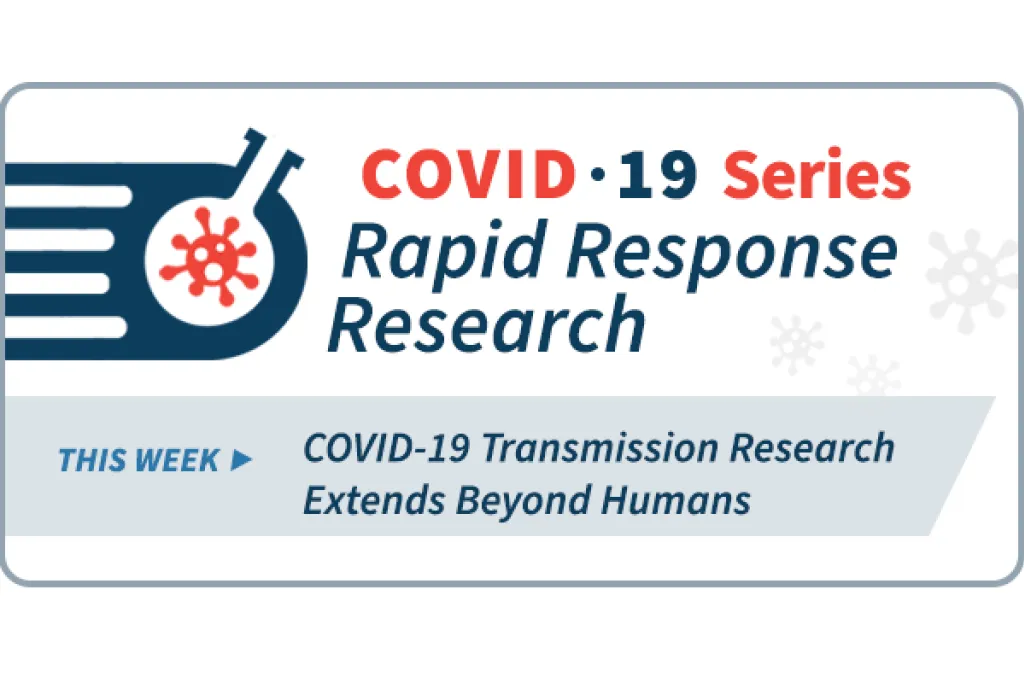As researchers continue to learn more about the spread of COVID-19 among humans, a team of Kansas State University researchers led by Jürgen Richt, DVM, PhD, is studying the susceptibility and transmission of the virus in white tail deer.

This project’s first stage was to determine whether deer cells can be infected by SARS-CoV-2 and if white tail deer can become infected and transmit SARS-CoV-2. This would reveal critical information for decision-makers in the quest to develop and implement proper mitigation and control measures.
Dr. Richt and his team examined SARS-CoV-2 infection of deer cells to characterize replication kinetics and determine genomic stability by next generation sequencing. They discovered that in white tail deer and mule deer primary lung cells are susceptible to SARS-CoV-2 infection.
The researchers then explored SARS-CoV-2 transmission in infected white tail deer. Results concluded that adult white tail deer are susceptible to the virus and can transmit SARS-CoV-2 to uninfected white tail deer. The final step of the project, currently underway, is to develop diagnostic tools to detect SARS-CoV-2 infection in deer.
“As we learn more about the potential for SARS-CoV-2 to infect and spread among animals, we have to improve our diagnostic capabilities to diagnose this virus infection in different animal species,” Dr. Richt said. “Beyond that, white-tailed deer are a significant food, recreation and economic source, making our understanding of the impact of the SARS-CoV-2 virus on them important.”
Dr. Richt also said “this work will help to device control measures among white-tailed deer and other wildlife species or alternative livestock in general”.
Results from the research into white-tailed deer may improve the understanding of the extent to which funds from the USDA-NIFA can facilitate the discovery of solutions to challenges in the animal and public health industries.
COVID-19 SERIES: RAPID RESPONSE RESEARCH
- New Modeling Tool for COVID-19 Mitigation in the Food Industry (December 15, 2021)
- COVID-19 Transmission Research Extends Beyond Humans (published 30 June 2021)
- Exploring the Lessons Learned from COVID-19 (published 4 June 2021)
- Investing in U.S. Food Supply Chain Resiliency (published 9 April 2021)
- Worker Safety and Dairy Operations (published 22 March 2021)
- Modeling and Training to Enhance Resilience of the U.S. Food System to COVID-19 Labor Shortages (published 10 March 2021)
- Ensuring Meat Processing Safety in These Challenging Times (published 1 March 2021)
- Keeping Food Safe from Farm to Table (published 3 February 2021)

